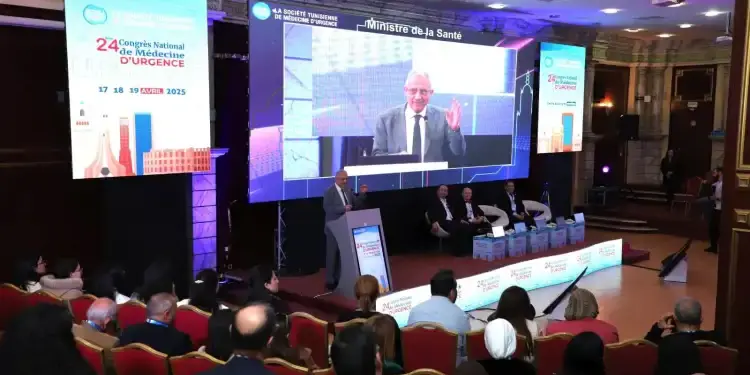On the occasion of the 24th Tunisian Congress of Emergency Medicine, the Ministry of Health announces a series of measures aimed at modernizing and strengthening emergency services, through the digitization of care paths and the use of artificial intelligence.
More than 1,000 Tunisian and foreign health professionals met during the 24th National Congress of Emergency Medicine, placed under the theme: “Emergency medicine for the future and quality approach”.
This event was inaugurated by the Minister of Health, Dr. Mustapha Ferjani, who took advantage of the gallery to detail an ambitious roadmap for emergency services in Tunisia.
Among the flagship announcements: the launch, next June, of a national digital platform for the management of myocardial infarction. This project, carried out in collaboration with the Tunisian company of cardiology and that of emergency medicine, aims to optimize reaction time and improve coordination between hospital structures.
This initiative is part of an already proven global trend, like the STEMI (St-Elevation Myocardial Infarction) networks developed in Europe, which have made a clear reduction in mortality through digital sorting and rapid transfer solutions.
The Minister also insisted on the digitalization of care paths, especially for cerebral vascular accidents and heart attacks, two pathologies where the time factor is determining for the survival of the patient.
In parallel, efforts will be made to strengthen the equipment of emergency services, increase medical and paramedics, and improve coordination with the ministry’s strategic operations room, particularly in terms of prehospital medicine.
Another innovative component: the integration of artificial intelligence and medical simulation to improve care protocols, reduce errors and train medical teams to complex situations.
“The emergency services are the showcase of public health. Their improvement is a collective issue,” said Dr Ferjani, calling for a mobilization of all players in the health system.








